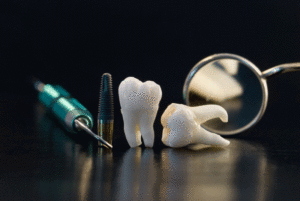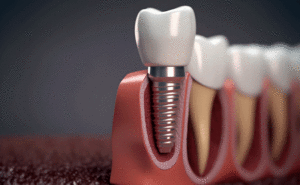If you’ve ever experienced issues with the temporomandibular joint, or TMJ, you know the pain and discomfort is no laughing matter. As one of the most often used and problematic joints in the body, if something goes wrong with the joint, it’s not going to feel good.
How long does TMJ pain last?
Unfortunately, there’s no easy answer to how long pain will last. It really depends on the person and the cause. For some, pain and discomfort is only temporary and can be managed with over-the-counter pain medication, ice packs and massaging the area. For others, the pain may be long-term and require a more significant solution.
Here is a look at common causes of TMD (temporomandibular joint disorder) and how long you may expect pain to last.
Injury
If you started experiencing TMJ disorder following a facial injury or other incident that you can pinpoint as the cause, then there’s a good chance that the pain will eventually go away on its own over time. In the case of an injury, the TMJ pain will likely subside as your injury heals.
Medications
You may be surprised to learn some medications can actually cause jaw pain and TMD. Medications for depression, anxiety and ADHD have been known to increase teeth grinding and exacerbating TMJ symptoms. Many are able to continue these medications and treat TMD simultaneously. Do not stop taking medications without first consulting with your physician.
Teeth-Grinding (Bruxism)
For TMJ pain caused by teeth grinding, then until the issue is resolved, the TMJ pain is likely to continue. The nice thing about teeth grinding – and many of the over underlying symptoms – is that this is a fairly easy issue to treat once it is discovered. Teeth grinding may be resolved by wearing a bite guard at night.
Stress
Stress is often managed with behavioral therapy. Massage can also be helpful when dealing with TMD connected with stress. .
Misalignment (Malocclusion)
When you close your mouth, your top and bottom teeth should touch evenly. The dental term for an imperfect or misaligned “bite” is malocclusion. An occlusal adjustment corrects the malocclusion and repairs the bite and it may ease your TMJ discomfort as well.
Arthritis
Arthritis is managed with medication and massaging. Over-the-counter, nonsteroidal anti-inflammatory drugs (NSAIDs), like naproxen or ibuprofen, can help relieve swelling and pain.
Finding Your Solution to TMJ Pain!
If you can’t point to a particular injury or incident as the reason for your TMJ pain, there’s a greater likelihood of an underlying medical issue contributing to issues with your joint. In this case, unless treatment is sought for the specific underlying medical issue, the TMJ discomfort is unlikely to persist.
If you’re experiencing any pain or soreness or headaches, ask your dentist. You’ll be surprised at what dentists can do to help with your level of comfort. For more information on TMJ therapy, contact our doctors, Dr. Richard Caven, Dr. Shelby Denman, and Dr. Stephen Carpenter, by calling our Caven Dental office in Jacksonville, FL, to schedule a consultation today!



